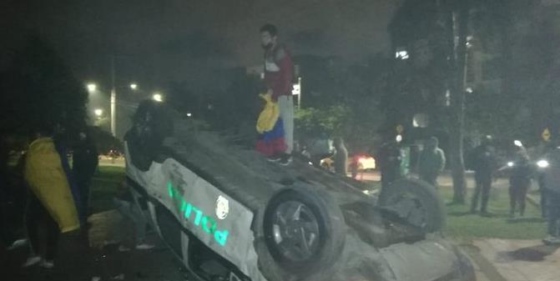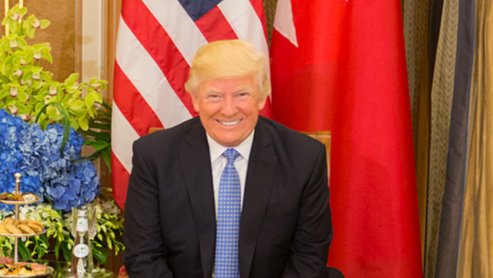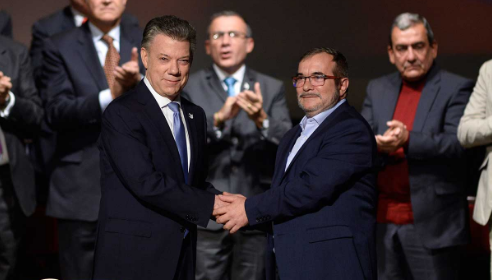
Will Protesters Keep Taking to the Streets in Colombia?
A Latin America Advisor Q&A featuring experts’ viewpoints on the motivations behind and implications of recent protests in Colombia.
Colombia | Professor, University of the Andes
Former UN Permanent Representative of Colombia
Fernando Cepeda is a Colombian political scientist, professor, and diplomat. Cepeda has represented Colombia in numerous countries and international organizations. Among his many diplomatic posts, he has been chargé d’affaires of the Colombian delegation to the US, ambassador to the United Kingdom, France, and Canada, and permanent representative to the United Nations and the Organization of American States.
Cepeda studied philosophy and literature at the National University of Colombia, from which he earned a doctorate in law and political science. He also received a graduate degree in political science from the New School for Social Research in New York City. Cepeda has been affiliated with the University of the Andes, one of Colombia’s most prestigious universities, for 23 years. He has taught political science and held various administrative positions throughout his tenure, including rector, vice rector, and dean of the faculty of law.
Cepeda joined the Dialogue as a Member in 1998.
A Latin America Advisor Q&A featuring experts’ viewpoints on the motivations behind and implications of recent protests in Colombia.
U.S. President Donald Trump’s 2018 budget proposal contains major cuts to foreign aid, including $140 million in cuts to aid for Colombia, as well as the complete elimination of more than 60 federal programs. What would Trump’s cuts mean for the United States’ role and relations in Latin America?
Colombia’s Senate on Tuesday approved and sent to the lower house of Congress the government’s renegotiated peace accord with the FARC rebels. How different is this peace deal from the earlier version that voters rejected?
The announcement of a new peace deal in Colombia, while praised, also contributed to a growing sense of perplexity and suspicion.


